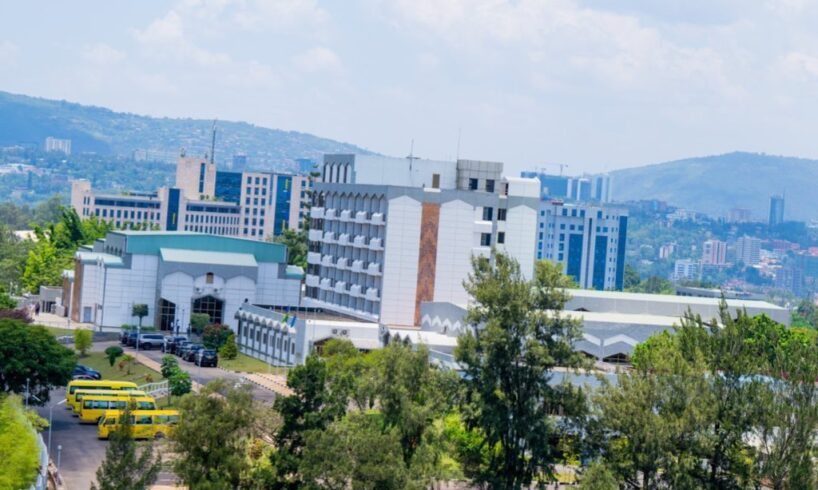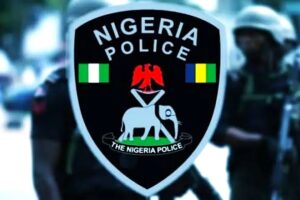
KIGALI, Rwanda, Aug 2 — The Parliament of Rwanda has issued a stern warning against what it termed “political flip-flopping” by Democratic Republic of Congo (DRC) leaders, cautioning that such inconsistency could jeopardize the fragile peace process underway in eastern DRC.
In a statement issued on August 1, the Rwandan legislature criticized remarks made by DRC National Assembly Speaker Vital Kamerhe during the 6th World Conference of Speakers of Parliament in Geneva on July 30.
The Rwandan Parliament said Kamerhe’s comments — which included renewed accusations against Rwanda — sharply contradicted his earlier endorsement of the US-brokered Peace Agreement signed on June 27 between Rwanda and the DRC.
“These utterances contrast sharply with the constructive spirit demonstrated at the session of the Parliamentary Assembly of La Francophonie held in Paris from July 12 to 13, 2025, during which the DRC Parliament, under Hon. Kamerhe’s leadership, supported a resolution welcoming the US-facilitated Peace Agreement of June 27, 2025, between Rwanda and the DRC,” the statement read.
“By switching to inflammatory rhetoric in Geneva just two weeks later, Hon. Kamerhe has undermined the commitment he publicly declared, raising reservations about the sincerity of the DRC Parliament in interparliamentary efforts to advance peace.”
The peace agreement, hailed as a landmark diplomatic breakthrough, seeks to end years of hostilities and militia-backed violence in eastern DRC.
Key provisions include the “disengagement, disarmament, and conditional integration” of armed groups — notably the M23 rebels and the FDLR militia — alongside a phased resolution of long-standing security grievances between Kinshasa and Kigali.
Washington talks
The row comes as both countries begin implementing the agreement through the newly established Joint Oversight Committee (JOC), which held its inaugural session in Washington, D.C. on Thursday.
The committee, supported by the United States, Qatar, Togo (as AU facilitator), and the African Union Commission, will monitor compliance and mediate disputes arising from the peace deal.
“The Joint Oversight Committee is charged with serving as a forum for implementation and dispute resolution,” the US State Department said in a statement, lauding the initial progress made by both parties.
The JOC adopted its terms of reference, appointed co-chairs from Rwanda and the DRC, and aligned its structure with broader regional stabilization efforts. Delegates also laid the groundwork for a Joint Security Coordination Mechanism to operationalize ceasefire arrangements on the ground.
Despite this progress, Rwanda’s Parliament warned that mixed signals from top Congolese leaders could stall ratification processes and erode mutual trust.
“The successful implementation of the Peace Agreement depends, among other factors, on both parliaments passing laws to ratify it. Flip-flopping of political stance risks delaying this process and jeopardizing the broader peace effort,” the statement added.
The Geneva controversy also casts a shadow over broader efforts by African regional blocs to consolidate peace in the DRC.
AU-led effort
On Friday, a high-level EAC-SADC meeting in Nairobi — co-chaired by Presidents William Ruto of Kenya and Emmerson Mnangagwa of Zimbabwe — resolved to merge all ongoing peace initiatives, including the Nairobi and Luanda processes, into a single African Union-led framework.
“This marks a turning point. There is now one African-led process that brings all efforts into a coherent mechanism,” President Ruto announced, noting the creation of a joint secretariat and a panel of eminent African facilitators to steer the initiative.
In a further show of support, US President Donald Trump is expected to host Presidents Paul Kagame and Félix Tshisekedi at the White House in the coming weeks to finalize implementation plans.
Trump has called the peace agreement a “glorious triumph.”
However, despite diplomatic momentum, fighting continues in eastern DRC, with the M23 rebel group reportedly controlling vast areas in North and South Kivu, including key cities such as Goma and Bukavu.
A recent UN report accused M23, in coordination with the Rwanda Defence Force (RDF), of capturing mineral-rich territories — an allegation Kigali has dismissed as politically motivated.
The Rwandan government insists its presence in eastern DRC is aimed solely at containing the FDLR, a Hutu militia linked to the 1994 Genocide against the Tutsi, while Kinshasa accuses Kigali of using the FDLR threat as a pretext for regional influence and resource exploitation.
The clashes have also taken a toll on international peacekeeping forces, with recent UN and AU mission reports confirming fatalities among MONUSCO and SAMIDRC personnel.
Amid these challenges, Rwanda’s Parliament has called for political integrity and accountability from regional leaders.



